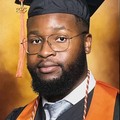TRAM Panacea Scholarship
Healthcare is one of the most important career fields in our world and is single-handedly responsible for saving lives and providing comfort.
From nurses to doctors to experts conducting research, healthcare workers are essential to the health and well-being of the world. However, this field often calls for advanced degrees and many years of schooling, which comes at no small expense. As a result, many students choose to pursue different fields or forgo college altogether due to financial need.
This scholarship seeks to support future healthcare providers by lowering the financial burdens of higher education.
Any undergraduate senior accepted into an accredited graduate-level program or a current student in a graduate-level program may apply for this scholarship opportunity if they’re pursuing healthcare with at least a 3.2 GPA and if they have demonstrated financial need and a history of leadership and community service or volunteer work.
To apply, tell us about a national or global health issue that you care about and why you’re passionate about that problem.
Tell us about a national or global health issue that you feel passionate about (such as obesity, substance abuse, mental health, etc.) and why you care about that problem.
Winners and Finalists
Winning Application

Explore All Kinds of Scholarships for All Kinds of Students
FAQ
The application deadline is Jul 15, 2025. Winners will be announced on Aug 15, 2025.
Your privacy is a top priority on the Bold.org platform, and you can find our privacy policy in full here. You may opt out of communications from Bold.org at any time, and unless we’ve first notified you and gotten your consent, you’ll never receive communication from any third parties related to personal information you give us.
Award amounts per winner are designated by the donor. Check the award amount for a detailed breakdown.
The winner will be publicly announced on Aug 15, 2025. Prior to the announcement date, we may contact finalists with additional questions about their application. We will work with donors to review all applications according to the scholarship criteria. Winners will be chosen based on the merit of their application.
Award checks will be sent to the financial aid office of the winner's academic institution in their name to be applied to their tuition, and in the name of their institution (depending on the school's requirements). If the award is for a qualified educational non-tuition expense, we will work with the winner directly to distribute the award and make sure it goes towards qualified expenses.
Before we award the scholarship, the winner will be required to confirm their academic enrollment status. Depending on the circumstances, verification of Student ID and/or their most recent transcript will be required.
If you have any questions about this scholarship or the Bold.org platform, just email contact@bold.org and we’ll get back to you as quickly as we can.
Yes. The terms and conditions for this scholarship can be found here.

